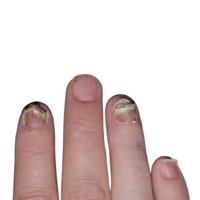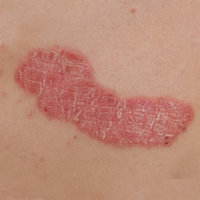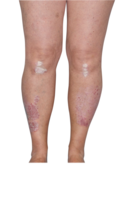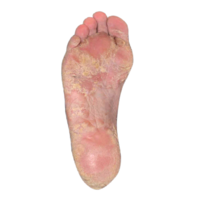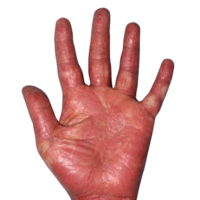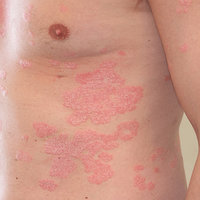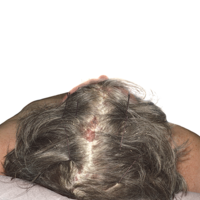
For people 6+ with moderate to severe plaque psoriasis

PLAQUE PSORIASIS
FACTS AND SYMPTOMS
What is plaque psoriasis and what are the symptoms?
Plaque psoriasis is an autoimmune disease that starts under the skin with symptoms like thick, red, scaly skin plaques. It’s not a rash, and it’s not contagious. And while it’s not curable, it can be controlled with the proper treatment. Watch this video with Cyndi and Dr Weinberg to get the facts about plaque psoriasis.
Cyndi and Dr Weinberg were compensated for their time.
See pictures of plaque psoriasis symptoms in real life.
Plaque psoriasis has many common symptoms that can affect each person in different ways. Look at the plaque psoriasis pictures below to learn more.
What should I know about scalp psoriasis and nail psoriasis?
Plaques on the scalp and nail changes are common in people with psoriasis.
Scalp psoriasis includes itchy, red, scaly patches with a silvery sheen, while common signs of nail psoriasis are blood underneath the nail, pitting, and discoloration.
Up to 50% of adults with psoriasis have nail psoriasis
Up to 80% of adults with psoriasis have scalp psoriasis
Scalp psoriasis and nail psoriasis could mean a higher risk of psoriatic arthritis. Many people with psoriasis could go on to develop psoriatic arthritis.
See before and after pictures of scalp and nail psoriasis in people taking COSENTYX.
“I was once refused in a nail salon because my nails were pitted and they thought I was contagious."
“Now, I like having my nails painted.”
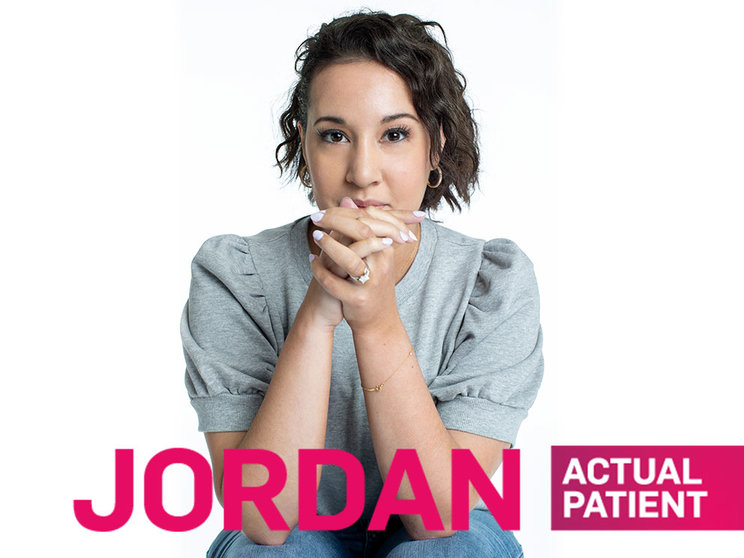
Individual results may vary. Jordan was compensated for her time.

Individual results may vary. Elizabeth was compensated for her time.
“A lot of what I love to do was severely affected because I have plaque psoriasis and psoriatic arthritis."
"Now, I find it much easier to do a lot of the things that I love to do, whether it’s surfing, walking my dog, riding my bike.”
What causes plaque psoriasis?
While the specific causes are not fully known, it’s believed that there are multiple molecules in your immune system, including IL-17A, that may play a role in inflammation. When there are too many of these molecules, they cause an inflammatory response that contributes to an overgrowth of skin cells. This results in thick, red, scaly plaques that can appear all over the skin. The skin plaques can also be painful, itchy, and may be a sign of plaque psoriasis.
Are psoriasis and psoriatic arthritis symptoms connected?
The same inflammation that causes skin plaques in people with psoriasis can produce joint pain, stiffness, and other symptoms that may be signs of psoriatic arthritis. Psoriasis and psoriatic arthritis symptoms may not always occur together; however, they may be part of the same psoriatic condition affecting different parts of the body.
Talk with a dermatologist to help get you started.
Find a dermatologist in your area who has experience prescribing biologics as well as other treatments for moderate to severe plaque psoriasis.

